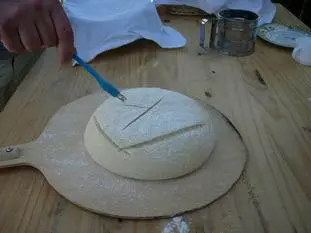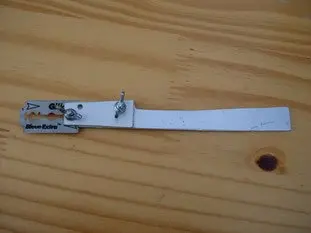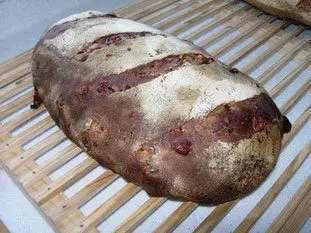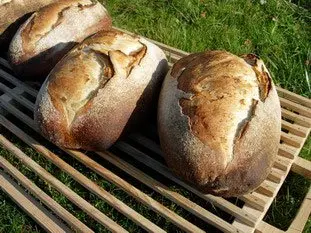General
The purpose of these cuts is to create weaknesses in the crust of the bread, and it's through these weaknesses - chimneys of sorts - that water vapor and CO2 can escape during baking, allowing the bread to expand.It's not a trivial or merely decorative gesture, and when properly laminated and baked, your bread will take on the irresistible appearance of a professional baker's loaf.
Warning: if you don't blade, your bread will puff less, and tear during baking.
Slashing tools

To slash well, it's no secret, you need a very sharp blade. A knife, even a sharp one, is not enough.
The best tool is a professional baker's blade, a kind of razor blade on a plastic handle. But it's rather expensive and hard to find.

A cheaper solution is to make your own tool, by putting a razor blade on an aluminium handle with two screws. It can then be held safely, and can be dipped in water during use.
How to slit ?
It's simple and complicated at the same time. Simple because you just have to makes slits in the dough, and complicated because their shape and direction influence how the bread cooks. Basically there are 3 main French ways to slash bread: classic, saucisson or polka.

Classic:
the bread is slashed with medium sized cuts, more or less along the loaf, but which overlap for about 1/3 of their length.

Saucisson:
This time the cuts are parallel and diagonally across the loaf.

Polka:
Cuts are crossed, in both directions. It's a cut usually reserved for round loaves.

Personal:
I almost never succeed with the classic cut, so I do my personal version by making cuts along the length but staggered.
Blade cut
Once the style has been choosen, the cutting angle is also important:

If you cut vertically, you bread will not get "ears" when cooking, those characteristic forms on the top.

If you cut with the blade at a 45° angle, your bread will get its "ears" during baking, and have a professional look.





The 4 comments already posted on this page
Tbanks for the translations as wellI am learning to speak french, but when baking I have come to the understanding that to succeed I need both the ingredients , measurements and technique.
Merci